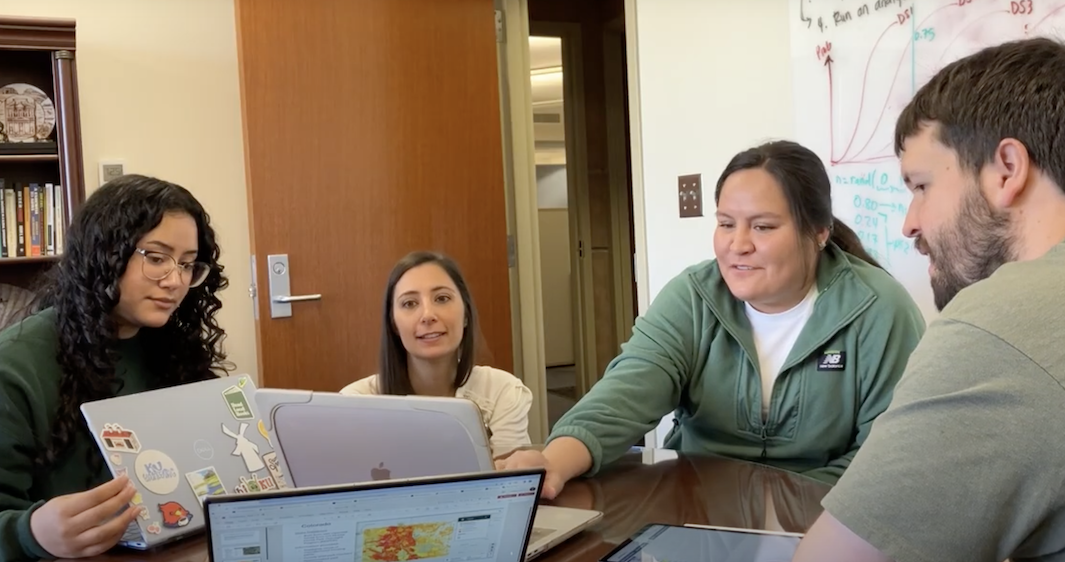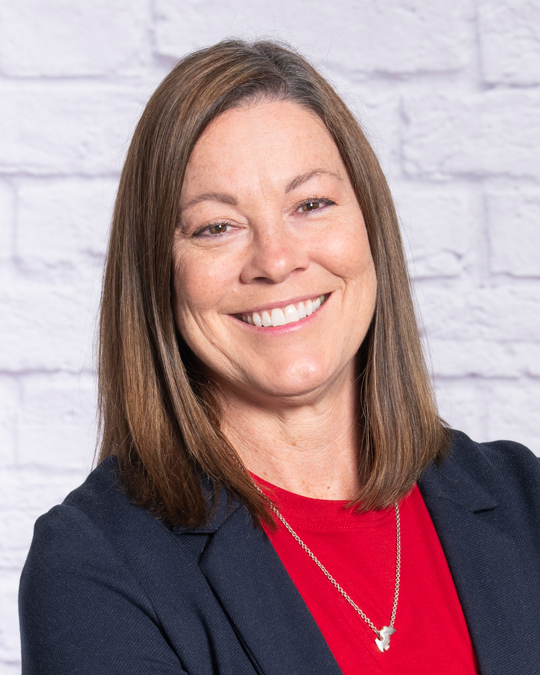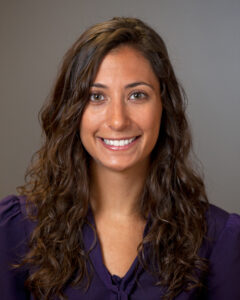

Professor’s multidisciplinary research looks at social inequities of natural disasters and how engineering plays a role.
Natural disasters can wreak havoc, but they can also spark great ideas that might mitigate damage in the future.
Elaina Sutley, professor of structural engineering at KU’s School of Engineering, is an Alabama native who experienced severe weather in her home state in 2011, while she was working on her master’s degree at the University of Alabama.

That April the state was hit by 62 tornadoes during a terrifying 18-hour period. According to the National Weather Service, an estimated 250 people were killed by the tornadoes and thousands more were injured. At least two of the tornadoes ranked EF-5s, the most intense on the Enhanced Fujita Scale, with winds estimated as high as 210 mph.
The storms leveled entire towns. Left behind was a trail not only of grief for lost loved ones but also the sense of loss that comes with the damage and destruction of homes, communities and livelihoods. Sutley witnessed the physical damage of the storms and the social inequity of recovery.
“How do you move on from an event like this when you’re still walking by your memories piled up on the street every day?” Sutley said, remembering how some victims’ homes were still in ruins while other areas had the resources to begin rebuilding.
That experience factors into her current research. Her multidisciplinary projects study the structural and psychological effects of natural disasters, and she integrates engineering and social science disciplines to understand what happens during those events. While much of the structural research happens in a lab, her work in the field learns from building failures and also focuses on the people dealing with disasters and climate change.
Ultimately, Sutley said, the work of engineers doesn’t end when the minimum requirements of a particular load are met. She believes engineers have a social responsibility and that’s been a key premise of her research at KU.
“When our buildings fail, people die, people suffer, people dislocate, and those effects can last a long time,” she said. “Who experiences these things can be very disparate. And engineers need to consider that.”
For students, the ability to contribute to innovative research like Sutley’s is one of the benefits of attending KU, a major research institution and member of the prestigious Association of American Universities.
Donors can play a role in advancing multidisciplinary research like Sutley’s. Through student scholarships, graduate fellowships and faculty support such as professorships, gifts make it possible for faculty members like Sutley to do the research that develops solutions to real-world problems and to have an impact with students along the way.
And that impact has broad reach. Sutley pointed out that while she is just one faculty member, she interacts with potentially hundreds of students in a day.
“A positive experience with a dedicated, valued faculty member is something students don’t forget,” Sutley said.
Sutley’s research offers several opportunities to engage students with different strengths. There are 16 students currently in her research group — not all of them from engineering. Among them:
· One is working toward a master’s degree in computer science.
· A Ph.D. student in behavioral science is also getting a master’s in urban planning.
· Undergraduate students include a political science major and an environmental science major.
Her research relies on all these different strengths to think about the problems differently and to make sure they are not just doing the engineering calculations; they are thinking about the societal problems as well. Her research project ARISE (Adaptable and Resilient Infrastructures driven by Social Equity) is a current EPSCoR project (through 2027), which means it receives money from a pool of funds at the U.S. National Science Foundation that supports projects in underfunded states like Kansas. Several Kansas Board of Regents institutions and community colleges are partners in the project and Sutley is the KU research principal investigator.
This statewide initiative seeks to advance the resilience of infrastructures that all Kansans depend on — such as water, energy and transportation systems — by creating tools that ensure support for our most vulnerable communities in rural and urban areas. The project
will also create a pipeline of community leaders and decision-makers who will transform how a community invests in and manages its human and physical infrastructure.
Her team uses surveys, interviews and focus groups to try to understand the experiences of community members after disasters and use that information to create frameworks to help build resilience.
“The way that we’re defining social equity and embedding that in our research is coming from the people in these communities,” she said. “And they’re coming from different types of communities: rural communities, urban communities, mixed urban and rural. And they have diverse populations.”
To learn more about Elaina Sutley’s research, call Senior Vice President Michael Arp at 785-832-7410 or email [email protected], or Caleb Regan, development director and team leader for engineering, at 785-832-7321 or email [email protected].
Stay Up to Date on the Campaign
While we strive for perfection, typos happen. Please report them.
1891 Constant Ave, Lawrence, KS 66047 | PO Box 928, Lawrence, KS 66044 | 785•832•7400 | 800•444•4201